Crown of Thorns, Christplant, חלבלוב קוצני
| Scientific name: | Euphorbia Millii Des Moul. | |
| Synonym name: | Euphorbia splendens | |
| Common name: | Crown of Thorns, christplant | |
| Hebrew name: | (Euphorbia erinacea חלבלוב קוצני (אין לבלבל אותו עם | |
| Family: | Euphorbiaceae, Spurge family, חלבלוביים |
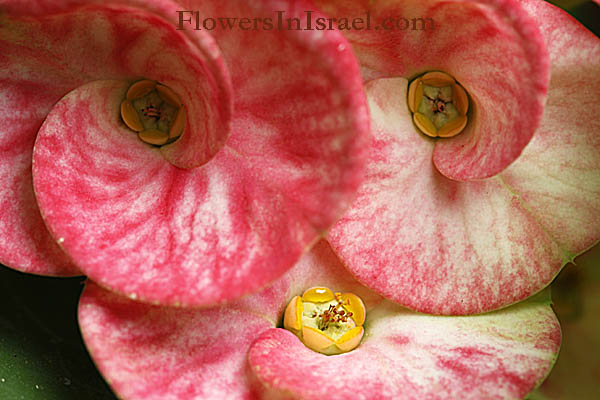
Location: Martha's Backyard |
| Life form: | Succulent climbing shrub, with densely spiny stems | |
| Stems: | Straggling stems that are equipped with slender spines up to 3 cm long. | |
| Leaves: | Obovate:Teardrop-shaped, stem attaches to tapering point | |
| Inflorescence: | Cyathia, a specialized cup-shaped type of inflorescence found in members of the Euphorbiaceae; it resembles a single flower and consists of a female flower in the centre surrounded by many simple male flowers enclosed within an involucre; the involucre also bears a number of petaloid glands along its rim | |
| Flowers: | Small yellowish flowers with two large petal-like showy bracts, variably red, pink or white | |
| Flowering Period: | It will remain in bloom almost year round, given sufficient sun. | |
| Origin: | Madagascar |
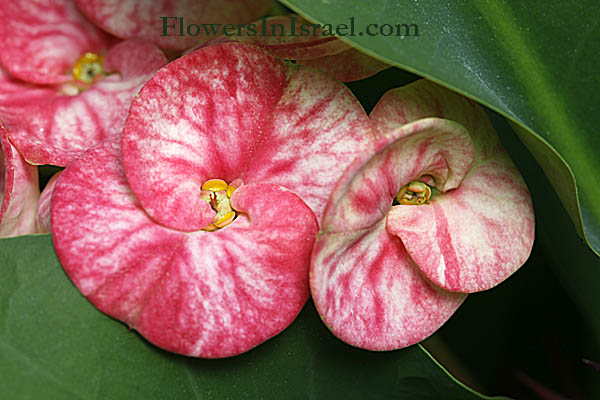
Location: Martha's Backyard Derivation of the botanical name: Euphorbia, named for Euphorbus, the official physician for King Juba II (50 BCE to 19 CE), king of Mauritania who was married to a daughter of Antony and Cleopatra (23 CE). Eu, "good" and phorbe, "pasture or fodder", giving the doctor Euphorbus the meaning well-fed! Millii, named for Baron Milius, once governor of the island of Bourbon (Réunion), who was responsible for introducing the plant into cultivation in France about 1821. splendens, shining, splendid.
Euphorbia Millii Des Moul.,"Christ's Crown of Thorns", familiar to Europe and U.S.A. in the present day, has nothing to do with the Biblical crown of thorns. It is a native of Madagascar and was completely unknown in Jesus' day. Linnaeus was of the opinion that the crown of thorns mentioned in Matthew 27:29 was made of Zizyphus spina-christi. 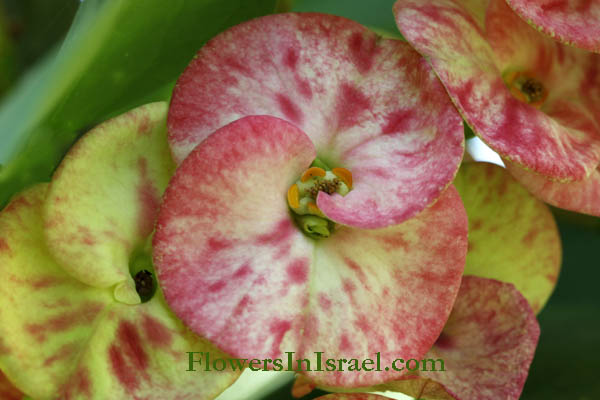
Location: Martha's Backyard 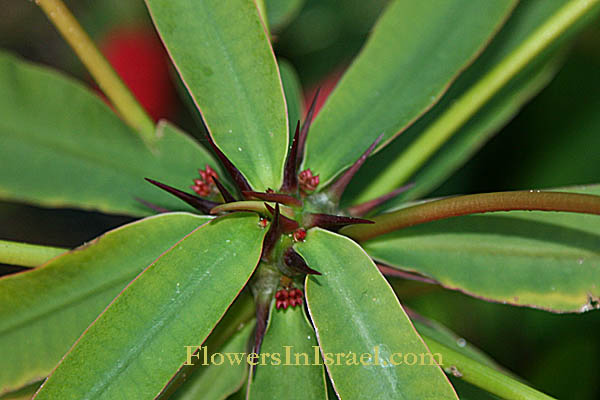
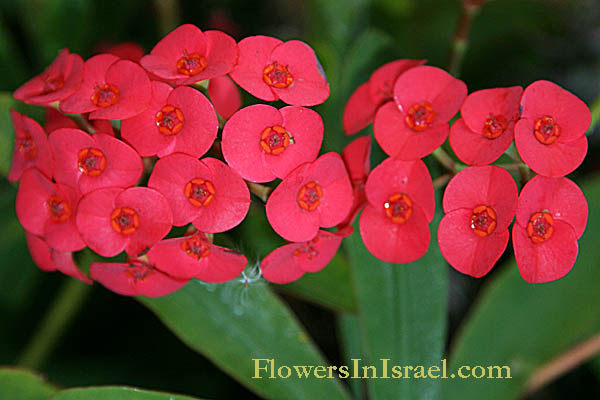
|